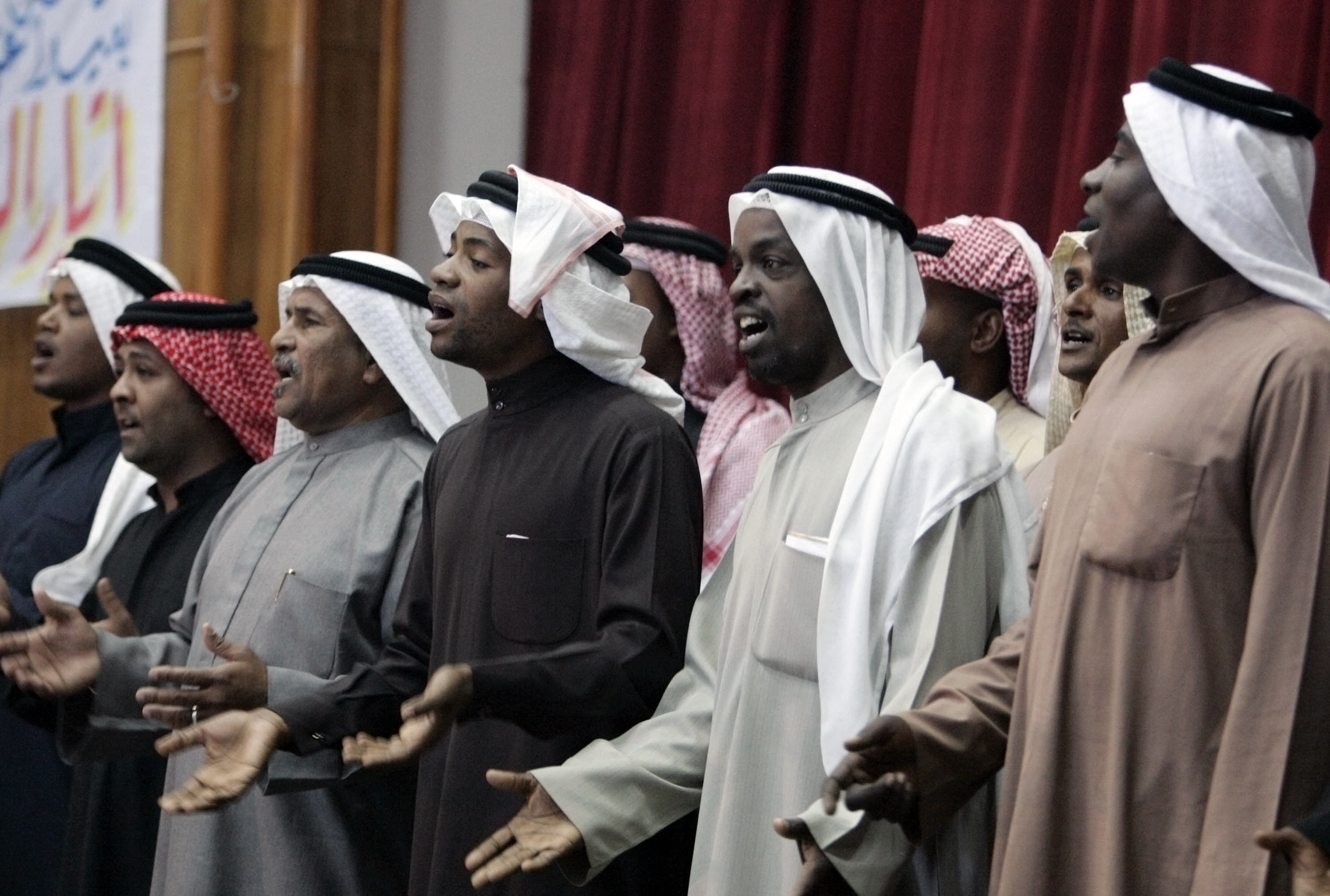Black Iraqis have been invisible for a long time. Their vibrant culture and struggle must be recognized.
March 24, 2023
By
Sarah Zaaimi
When roaming the streets of Hila or Baghdad, it is almost impossible to tell who is Sunni, Kurdish, Baha’i, or Mandaean. One community, however, stands out in the intricate cultural, religious, and ethnic mosaic of Iraq due to its largely visible ethnic origins: Black Iraqis. Concentrated in the outskirts of Basra and Zubair in southern Iraq, this community is linked to a dark
historical era when Basra was once a prominent center for the slave trade in the Islamic Empire between the ninth and nineteenth centuries. Visible traces of
structural racism and
xenophobiapersist today and can easily be identified in the power relations governing Black Iraqis and the rest of society.
Black Iraqis are not only living on the geographical margins of urban agglomerations but also on the margins of society and its structures, with
no political representation, no tribal umbrella, locked social mobility, and the constant stigma of being called
abd (“slaves”),
fahma (“piece of coal”), or other ethnophaulisms in everyday interactions. The community witnessed a short-lived
political revival following the 2008 election of
Barack Obama as the first black president of the United States and, more recently, with the
Black Lives Mattermovement, as
media articles rushed to document this newly witnessed awakening. However, activists in Iraq calling for Black Iraqi rights continue to face violent oppression as members of the community and its activists have become
targets of radical groups in recent years and have, unfortunately, opted to tone down their demands.
I was lucky enough—through an ethnographic project carried out with other Iraqi researchers—to penetrate the secretive world of Iraqis of African descent and discuss their positionality as a group in Iraq today and their unique Afro-Iraqi memory with local activists, performers, and academics from within the community, as well as with a few United Nations agencies. The observations and information I have included in this piece emanate directly from these fascinating first-hand encounters and debates.
Twelve centuries of disgrace
Black Iraqis are the descendants of immigrants and enslaved people from Sub-Saharan and East Africa. Their presence in Iraq dates back to the
Abbasid empire, starting from the ninth century when some newcomers came to the region as sailors, workers, captured slaves, or enslaved soldiers. They largely originated from the coast of modern-day Kenya, Tanzania, Mozambique, Zanzibar, Ethiopia, and
other African countries. In the absence of formal statistics, their community leaders estimate their numbers today to be as
high as 1.5 to 2 million inhabitants. Black Iraqis are scattered across diverse regions of the country, concentrating in the governorates of Basra, Maysan, and Dhi Qar. There are also a few families in Baghdad, Wassit, and other cities. However, the largest community resides on the outskirts of the cities of Basra and Zubair.
Despite slavery being officially abolished in the
nineteenth century and supported by Article 14 of the
2005 Iraqi Constitution, which stipulates “equality without racial-based discrimination,” Black Iraqis still endure systematic discrimination, marginalization, and structural racism embedded in historical stigmas and xenophobia against black people in the
Arab world, according to activists I spoke to. Iraq is a melting pot of other ethnic, religious, and cultural communities. Yet, many of these groups are “invisible” and can easily fade in the crowd due to similar physical features. In contrast, Black Iraqis are the
“visible others” who cannot be unseen or concealed. Hundreds of invisible cultural and social lines segregate the two communities, ostracize Black Iraqis, and reaffirm their otherness in urban design, tribal allegiances, and marriage arrangements.
One intriguing conversation I had with a group of non-black Iraqi academics, opened my eyes to the extent of denial most people feel about the subject. I was told repetitively, “We don’t have black and white in Iraq. We are all equal,” and was asked to drop the appellation black Iraqis or Afro-Iraqis and replace it with
asmaror
abu samra, which means tanned or brown in Arabic. Little did they know how offensive it is to deny the community its blackness and attempt to dilute it with a drop of whiteness. In contrast, the Black Iraqis I have been working with, including Dr. Thawra Yousif, Dr. Abdulkareem Aboud, and Dr. Abdel-Zahra Sami Farag, all influential figures in their community, proudly claim their blackness and celebrate it.



